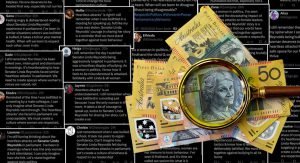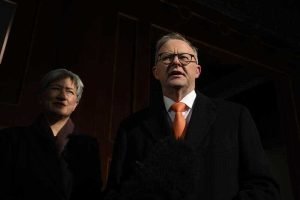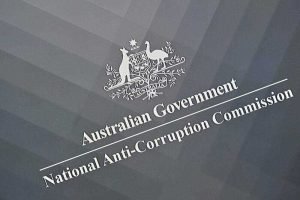The Shot
To the chagrin of many establishment journalists, Julian Assange is finally home
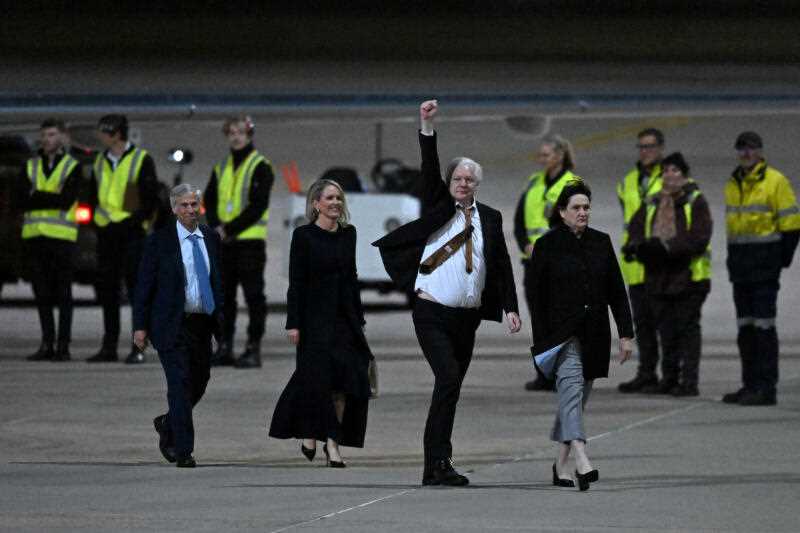
As Julian Assange disembarked his private jet in Canberra yesterday, he did so with a raised fist. After 14 years of solitude and imprisonment, the prime of his life dissolved in confinement away from his children and wife, his mind and body thrown around like a diplomatic ragdoll, even his staunchest detractors couldn’t begrudge him the gesture.
Assange arrives home to millions of ordinary Australians relieved his ordeal is at an end, and to an Australian political and media class who appeared pensive and cautious as they tried to digest the news Assange would be back on terra firma in the land of a media terra nullius.
Throughout his incarceration, Assange has become a symbol of defiance to the rapidly shifting Western hemisphere, highlighting the ugly side of a violent crumbling order. Alongside his casting as chief martyr, the traditional fourth estate has become wholly detached from its professed function, routinely sharing the values and objectives of the powerful. The servants of this machine are just as frightened by Julian Assange as their masters.
Patricia Karvelas, leading the day on the ABC’s RN Breakfast, curtly addressed the details of Assange’s release, while on the telly, the team on ABC News Breakfast did the same. There was a strange, disingenuous reverence across the media landscape, as the journalistic cohort who abandoned Assange to the wolves sheepishly lined up to place dead flowers on the road for his return.
In 2018, around the time the Ecuadorian embassy was cutting off Assange’s internet access, and just prior to him being infamously dragged out of the building by several police and shoved into a van against his will, four of Australia’s biggest ABC names lined up to give their take on the human rendition unfolding before everyone’s eyes. When ABC Breakfast’s Michael Rowland commended the Ecuadorian government’s decision to marginalise Assange on Twitter/X, a former Four Corners journalist asked Rowland why would “silencing a fellow journalist be supported”?
“That remains a disputed opinion” jumped in Lisa Millar. “You put yourself in a small camp calling him a journalist”. Not long after, “Couldn’t have said it better, @LisaMillar. It is a VERY small camp”, squawked Rowland in tabloid-styled co-host breakfast television unison. Virginia Trioli joined the chat to question said camp size, reminding her colleagues that it had become a “very BIG” camp, “albeit a divided one”, before Patricia Karvelas entered the room and tacked on her last laugh “He isn’t a journalist. He is a misogynist”. (A logically ridiculous assertion – plenty of journalists are misogynists – one does not preclude the other.)
At that moment, as Assange sat on the verge of being locked away indefinitely in prison, you might expect this kind of banter from random cranks on Facebook , or even maybe among the whinnying ponies residing in the Murdoch stable at Sky News Australia, but the people casting lots over Julian Assange as the sword of Damocles dropped down on him were tax-payer funded employees at our public broadcaster.
In a world where their colleagues get sacked, “Latouffed”, for retweeting a Human Rights Watch post, and senior political staff get counselling for implying the presence of racism in Australia, you would think these highly influential ABC employees would have done some soul searching and started looking to report the return of Assange with some respect, resetting the poisonous narrative by addressing their own prejudices.
On the day of Assange’s return, while Patricia Karvelas was hosting her RN Breakfast program, she saw fit to retweet a post from far-right evangelical former US Vice-President Mike Pence (who ran a government that looked into killing Assange) in which he angrily said Assange “should have been prosecuted to the fullest extent of the law”. If this wasn’t an endorsement, it certainly wasn’t a balanced perspective to share.
Karvelas deleted the tweet and stated that she didn’t agree with Mike Pence, but even if that was the case, she is part of a cohort that abandoned Assange and wrote him off the page, perhaps thinking he was never coming home.
When Assange was taken to Belmarsh prison, after himself serving time in an Egyptian jail, journalist Peter Greste denounced Assange in an article for the Sydney Morning Herald in 2019 titled “Julian Assange is no journalist: don’t confuse his arrest with press freedom”. And while Assange was in the skies returning home, Greste returned with a softer article where he still managed to lay a velvet boot into the returning Assange. Speaking of ethical and professional standards that he claims to uphold, Greste said, “I don’t believe WikiLeaks met that standard”.
Like many who toil in the journalistic wastelands of Australia, Greste is an example of the resting state of the press in this country. Unable to deny Assange’s outstanding contribution to journalism, but unwilling to recognise him as one of them, the pundits face a difficult task framing Assange. Stubborn, and equipped with lashings of the Dunning-Kreuger complex, not much seems to chasten the Australian press, who self-marinate in the Bain Marie of each other’s vapidity, basting one another with the pan juices of tabloid journalism to mask the bacteria that coats their work. The likes of Greste, Millar, Rowland, Karvelas and the pack of corporate press hyenas who scrawled ridicule about the inhumane plight of one of their own, may have their tails between their legs as a giant returns home.
There is evidence that the Australian political establishment put pressure behind the scenes to secure Assange’s release, and more evidence that these diplomatic efforts were achieved under the duress of continuous public and legal pressure. But is there any substance to the Australian journalistic community, Assange’s comrades, who largely left him high and dry? Penny Wong may be able to technically claim that Assange’s release was the result of the Albanese government engaging in “careful, patient and determined efforts to bring Julian Assange home”, but can the Australian media dare to say the same?
Whether he fits the traditional definitions or not, Julian Assange is the most decorated journalist of all time: he holds press freedom awards in dozens of countries, and has captured the focus of billions around the planet. In New York, Washington, Paris and Berlin, there are credible journalists that will be able to write about Assange from a position of conviction, but over here, between the former Murdoch tabloid hounds that sleep soundly in the ABC kennel, the James Campbell league of discombobulated pundits, and the Ben Fordham style of insight that radiates out over the commercial radiowaves, who in Australian media can write an article about Assange with any true sincerity? Who can put up their hand to interview someone who holds a mirror directly to what is ugly about everything they have become?
Over seventy-one percent of Australians polled supported pressure to close Mr Assange’s case. His return is the end of a harrowing and tortuous time for his family. It is a relief for the nation. The flame of press freedom still faintly burns, although there aren’t many who still practise the craft, and many more that are confused as to what it even is.
Assange returns to a country that even he may have trouble recognising. In the years that have gone by, a bipartisan miasma has drifted over the nation, a confluence of stagnant leadership and ideas mixing with the odiousness of the toxic concentrated press apparatus, and the sociopathy of foreign multinational interests. Australian press objectivity has slipped dramatically, and journalists are alarmingly out of touch with their tradecraft. Perhaps the return of Assange could spell out a new revival in objective journalism and his presence could corral the stagnant Australian press into life again. One could only hope.
As the news rolled on, coverage morphed into special panels featuring the very journalists who might now be wary of Assange for things they have said over the years. For all the barbs, slings and arrows cast at him from across the seas, Assange returns to Australia a hero in the eyes of many, and his hero management will be a key consideration for the collective corporate press as it tries to tiptoe around this gravitational force. With nothing else to go on, the press may wish to hold onto the narrow framing of Assange as a convicted felon – but they do so at their own peril.
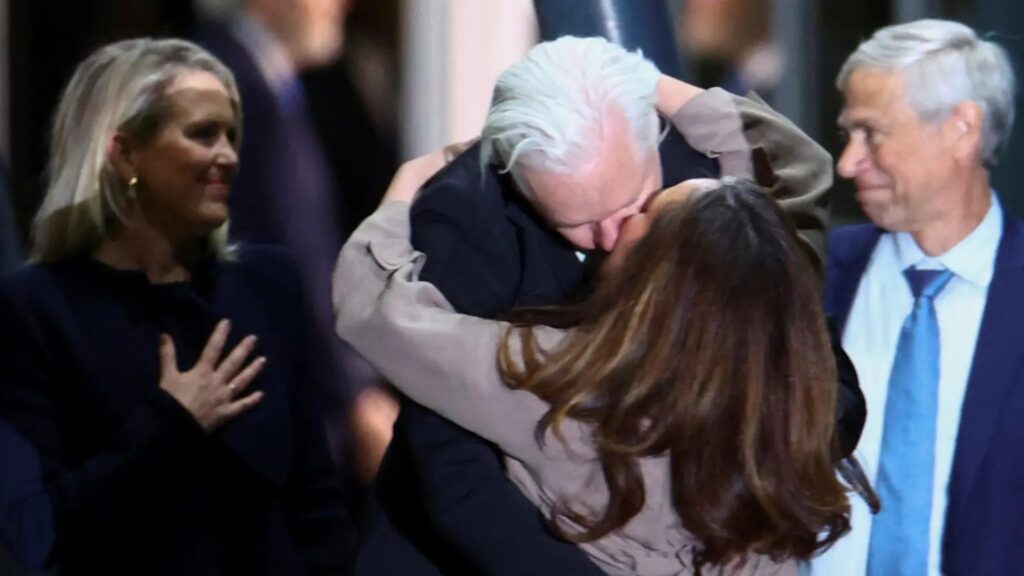
More like this
Dave Milner



